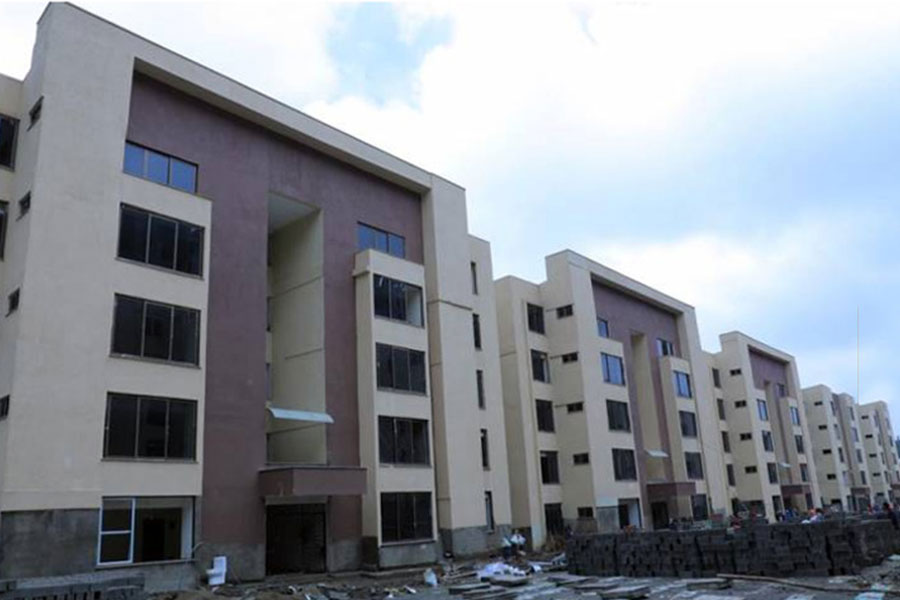
Radar | Jun 14,2020
Sep 19 , 2020
By Kidist Yidnekachew
Many changes have been witnessed since the Novel Coronavirus (COVID-19) pandemic started wreaking havoc across the world, on economies as well as on social relations.
We have seen Tiktok, a video sharing social platform, become arguably the primary destination for creative content, invaded by celebrities looking to exploit its popularity. We have seen the suspension, if not the death, of social norms, such as shaking hands when greeting. Our hands are slightly less smooth after all the washing with soap and alcohol we have been doing.
Even though the adjustments were linear for every corner of the world, there was one place where they were going to be a hard sell - Ethiopia. The land of daily communal coffee gatherings and tactile greetings, often with cheek kissing, was predicted not to be likely to follow the pandemic rules. Let us also not forget the gursha, an affectionate gesture where one person feeds another by hand.
Fortunately, people showed sense and did take to the new rules. The tactile greetings were suddenly gone, masks were being worn, and some social distancing rules were being adhered to. Makeshift hand washing stations were outside of every bank branch and supermarket, and grassroots public charities popped up to distribute food items to the less privileged.
But whether or not precautions were taken satisfactorily was questionable. Given the relatively large proportion of the population that lives on subsistence, efforts at social distancing were estimated to fail anyways - at least that was the assumption.
Curiously, neglect of the precautions became worse as the number of daily reported cases increased. By the time there were around 1,000 COVID-19 cases being reported every day, business went on as usual. With the expiration of the five-month national emergency invoked to combat the spread of the virus, just in time for the New Year celebrations, it was as if COVID-19 never existed.
What happened? Was it the realisation that quarantine was only possible for higher-income folks? Was it the slowing economy? Was it the inflating cost of living? Why are we no longer social distancing? Why hasn't the election been reinstated?
People going to work because they can no longer afford to stay at home is one thing. But the recently emerging videos of jam-packed night clubs, people breathing and sweating on each other, is another. One video of such a night club brings to mind memories of the sweat-fest of a party thrown in one scene of The Matrix: Reloaded.
But this was not all. There were also private parties, flouted on social media.
Is our individual will to live and self-preserve dependent on the government's attitude? If the government does not tell us to protect ourselves, do we just go wild?
The answer seems to be in the affirmative. Recently, a visiting friend from the United States was elated to learn that he was not allowed to wear a mask inside a church. It is only slightly less shocking that he is a Donald Trump supporter.
It is hard not to believe that the spike in the number of cases has been our own doing. With all of the holiday revelry going around, it is likely that a couple of weeks from now, there will be yet another explosion of cases. It will be critical to recognise then that the reason for this is our own actions and not simply a consequence of our under-privileged position as a developing country.
What is important here is to acknowledge that many have been under harsh financial constraints for months now. Take me, for example. It has been a while since I have been able to pay rent on time. It is hard to consider where I would be, and I am sure the same is true for many people, if it was not for the credit some kiosks provide. But the clubbing and total neglect of safety precautions we see in some places are not in any way explainable by the financial hardships many are feeling.
To repeat, it is our fault.
PUBLISHED ON
Sep 19,2020 [ VOL
21 , NO
1064]


Radar | Jun 14,2020

Viewpoints | Jan 03,2021

Addis Fortune | May 03,2024

Fortune News | Jul 06,2025

View From Arada | Feb 16,2019

Fineline | Mar 14,2020

Viewpoints | Jul 18,2021

Radar | Dec 25,2021

Fortune News | Jun 01,2019

Radar | May 06,2023

Photo Gallery | 179231 Views | May 06,2019

Photo Gallery | 169427 Views | Apr 26,2019

Photo Gallery | 160329 Views | Oct 06,2021

My Opinion | 137163 Views | Aug 14,2021
Commentaries | Oct 25,2025

Dec 22 , 2024 . By TIZITA SHEWAFERAW
Charged with transforming colossal state-owned enterprises into modern and competitiv...

Aug 18 , 2024 . By AKSAH ITALO
Although predictable Yonas Zerihun's job in the ride-hailing service is not immune to...

Jul 28 , 2024 . By TIZITA SHEWAFERAW
Unhabitual, perhaps too many, Samuel Gebreyohannes, 38, used to occasionally enjoy a couple of beers at breakfast. However, he recently swit...

Jul 13 , 2024 . By AKSAH ITALO
Investors who rely on tractors, trucks, and field vehicles for commuting, transporting commodities, and f...

Oct 25 , 2025
The regulatory machinery is on overdrive. In only two years, no fewer than 35 new pro...

Oct 18 , 2025
The political establishment, notably the ruling party and its top brass, has become p...

Oct 11 , 2025
Ladislas Farago, a roving Associated Press (AP) correspondent, arrived in Ethiopia in...

Oct 4 , 2025
Eyob Tekalegn (PhD) had been in the Governor's chair for only weeks when, on Septembe...

Oct 25 , 2025 . By YITBAREK GETACHEW
Officials of the Addis Abeba's Education Bureau have embarked on an ambitious experim...

Oct 26 , 2025 . By YITBAREK GETACHEW
The federal government is making a landmark shift in its investment incentive regime...

Oct 29 , 2025 . By NAHOM AYELE
The National Bank of Ethiopia (NBE) is preparing to issue a directive that will funda...

Oct 26 , 2025 . By SURAFEL MULUGETA
A community of booksellers shadowing the Ethiopian National Theatre has been jolted b...